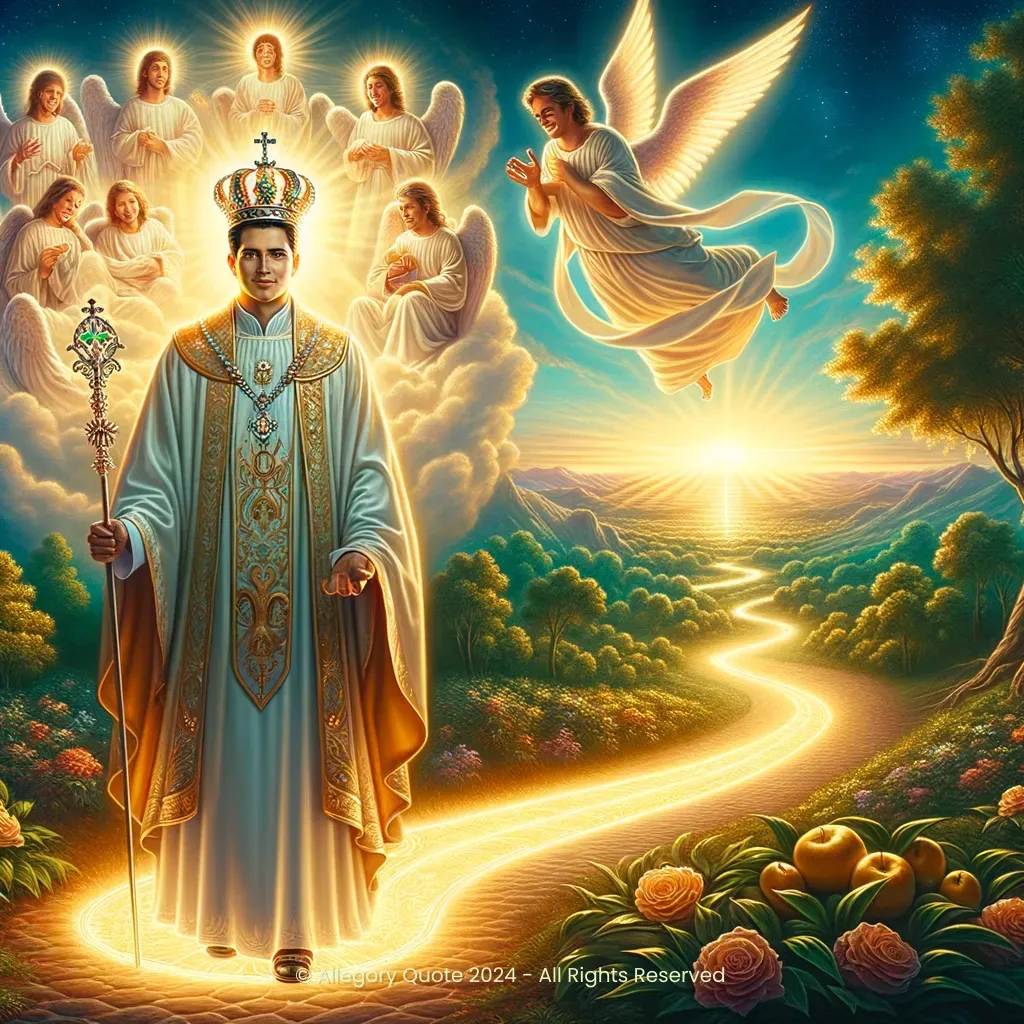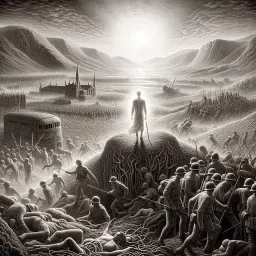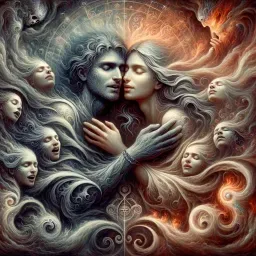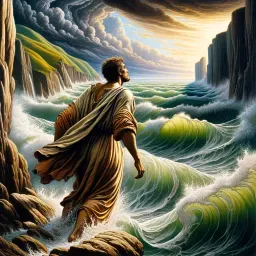”Your will is free, upright, and whole;
henceforth, you act according to its discretion.
Therefore, I crown and mitre you over yourself.
“

- Meaning
- The meaning of the phrase lies in the concept of free will. The angel declares that Dante's will is finally free, upright, and whole, no longer subject to sins and earthly passions. Now Dante is "crowned and mitred," symbolizing full sovereignty over himself; in other words, he is capable of choosing his spiritual path autonomously and responsibly.
- Allegory
- The image represents a man who has reached a high degree of spiritual awareness, symbolized by his coronation and mitre, and finds himself in a serene and divine environment represented by the garden. The angels and the golden light symbolize divine guidance and blessing, while the luminous path symbolizes the clear spiritual direction that the man is now able to follow autonomously. The dawn symbolizes a new beginning, full of hope and promise.
- Applicability
- The concept of free will is central to daily life and can be applied in many situations. Every human being has the capacity and responsibility to make autonomous choices, without being entirely bound by external forces. This awareness is an invitation for all of us to reflect on our decisions and to exercise our will consciously and morally. It is an encouragement to live according to our principles and to pursue our spiritual and personal well-being.
- Impact
- The phrase has had a significant impact on literature and Christian culture, representing an example of the deep intertwining of faith, morality, and literature. It is often cited in contexts exploring free will, ethics, and individual sovereignty. It has inspired numerous philosophers and writers over the centuries, highlighting the importance of personal responsibility and self-determination in spiritual and moral evolution.
- Historical Context
- The phrase comes from the "Divine Comedy," written around 1308-1320. The poem reflects the religious, political, and philosophical tensions of medieval Italy, placing a strong emphasis on Christian morality and spiritual growth.
- Criticisms
- There are no particular criticisms or controversies tied to this specific phrase. However, the concept of free will itself has been the subject of philosophical and theological debate for centuries, with various thinkers exploring its implications and limitations.
- Variations
- The concept of free will appears in various cultures and religions, with slight variations. For example, in Eastern philosophy, such as in Buddhism, free will is interpreted in relation to the idea of karma, where present actions influence the future. Cultural differences may concern the emphasis placed on individualism or collectivism regarding moral and spiritual decisions.
-

In the midst of chaos, there is also opportunity.
-

Infinite goodness has such wide arms, that it embraces all that turns to it.
-

Ah, how hard it is to describe this rough and harsh and dense forest, which renews fear in my thoughts!
-

To run upon better waters now hoists sail the little vessel of my genius, leaving behind itself a sea so cruel.
-

Love, which absolves no loved one from loving, seized me so strongly with his charm that, as you see, it does not leave me even now.
-

In His will is our peace.
-

And just as someone who, with laboring breath, has escaped the sea to reach the shore, turns back to gaze at the perilous waters.
-

You were not made to live like brutes, but to follow virtue and knowledge.
-

O imagination, that sometimes steals us so, from outside things, that we pay no attention, though someone might be present who hears a bell or a horn, within you!
-

And then we emerged to see the stars again.
No Comments